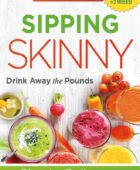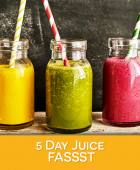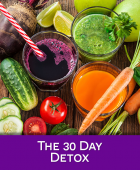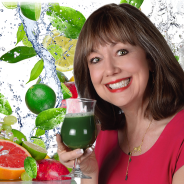Sugar Causes Cancer
Cancer is linked to high levels of sugar in the diet. Less than one hundred years ago, in 1931, scientists discovered that cancer cells have a fundamentally different metabolism with regard to energy compared to healthy cells. They learned that malignant tumors exhibit an increase in anaerobic glycolysis—the process in which glucose is converted to fuel by cancer cells, thus creating lactic acid as a by-product. The large amount of lactic acid that is produced in this manner is then transported to the liver and creates a lower, more acidic pH in the cancerous tissues in addition to symptoms of physical fatigue due to the buildup of lactic acid. In other words, they discovered that larger tumors seemed to exhibit a more acidic pH.
The Main Event: You vs. Sugar
When our bodies develop insulin resistance, we must secrete more insulin to process the sugars in our diet; but unfortunately, insulin, as well as a related hormone known as an insulin-like growth factor, actually promotes tumor growth. Gary Taubes, in his 2011 New York Times article, says this: The cells of many human cancers come to depend on insulin to provide the fuel (blood sugar) and materials they need to grow and multiply.…The more insulin, the better they do. Some cancers develop mutations that serve the purpose of increasing the influence of insulin on the cell; others take advantage of the elevated insulin levels that are common to metabolic syndrome, obesity and type 2 diabetes. Some do both. [Craig Thompson, president of Memorial Sloan-Kettering Cancer Center in New York] believes that many pre-cancerous cells would never acquire the mutations that turn them into malignant tumors if they weren’t being driven by insulin to take up more and more blood sugar and metabolize it.
Elevated insulin, especially as seen in an obese or overweight society, often shows up in the development of many cancers, especially in breast and colon cancers. Lewis Cantley, director of theCancer Center at Beth Israel Deaconess Medical Center at Harvard Medical School, has suggested that 80 percent of human cancers are promoted by mutations of cells and/or environmental factors that enhance the influence of insulin on tumor cells, causing them to grow.
Could it be possible that by avoiding sugar we could suppress insulin’s effect on cancer cell growth?
For this very reason, some of the researchers in this study have chosen to avoid sugar or high-fructose corn syrup. “I have eliminated refined sugar from my diet and eat as little as I possibly can,” Thompson said, “because I believe ultimately it’s something I can do to decrease my risk of cancer.” Sugar should scare you too. It scares me. My mother died of breast cancer when I was six years old, and she was only forty four. I learned that her diet was high in sugar and low in vegetables, which she didn’t like very much. She had a “sweet tooth” like my grandfather. Unfortunately she never learned the dangers of the treats she loved so much.
This is an excerpt from my book The Juice Lady’s Sugar Knockout.
Today’s Recipe
Apple Crisp
From The Juice Lady’s Sugar Knockout
This wholesome, wheatless, easy-to-make dessert is delicious served plain, either warm or cold. You really can have sugar free desserts that are delicious.
Apple Mixture:
- 6 medium apples, sliced (2 1/2 to 2 3/4 pounds)
- 2 Tbsp. lemon juice
- 2 Tbsp. coconut syrup
Place sliced apples in a shallow baking dish. Sprinkle them with lemon juice and then drizzle coconut syrup over them.
Topping:
- 2 cups rolled oats
- 1/3 cup unrefined coconut oil
- 1 tsp. vanilla
- 2 tsp. cinnamon
- 1/2 tsp. cardamom
- 1/3 cup coconut syrup
Place oats and oil in a food processor. Blend until well-combined. Keep blending and add vanilla, cinnamon, and cardamom. Continue blending and drizzle in coconut syrup. Blend for a few seconds more to mix the dough.
Distribute this mixture over the top of the apple mixture. Use a wet fork to spread it out and flatten it out somewhat. Don’t worry if it looks a little sloppy. It will look just fine after it bakes. Bake at 350 degrees for 50 minutes, or until fruit is tender and bubbly and the top is crispy brown. Serves 6.
Variations:
- Substitute 1/2 cup raisins or currants for the coconut syrup that is added to the apples and add about 1/4 cup apple juice or water to the pan with the fruit.
- Substitute pears, blueberries, or blackberries for part of the apples.
- Add about 1/2 cup chopped walnuts or pecans to the topping
Mini Cleanse 7-Day Colon Cleanse Starts Monday, Feb. 13th.
If you want a short cleanse for just the colon this program is for you. I highly recommend you get the Colon Cleanse Kit. Get both the program and the kit and take 15% off both.
30-Day Detox Starts Monday, Feb. 13th.
If you want to cleanse your colon, liver/gallbladder (with a parasite cleanse), kidney/bladder, lungs, lymphatic system, skin and blood, this program is for you.
Get the Internal Cleanse Kit with a free Colon Cleanse Kit and take 15% off both.










Hi Cherie,
I have been juicing and eating a more plant based diet for about a year now and it has helped me, but I am curious about this article on the ketogenic diet and cancer as veggie juice and fruit are high in natural sugars and it appears that the ketogenic diet is high in fat and animal protein and doesn’t mention juicing or eating fruit. What are you thoughts on this? Does this fit with your recommendations on juicing?
Thank you, Jenny
Jenny
I think overall the ketogenic diet is good in that it gets rid of sugar. But I highly recommend vegetable juicing for cancer. You need the biophotons to feed the mitochondria. I do not recommend fruit however, except for lemon and lime–very alkaline.
So glad you asked this question Jenny. When we saw you, Cherie, at the truth about cancer live symposium in Dallas, the key word in almost all the talks from the doctors was the ketogenic diet to starve cancer cells and then we saw your talk and were confused also.
There are many people who attribute their cancer cure to vegetable juices. You can add them to a ketogenic diet. But to avoid them would be detrimental. Juices contain nutrients that cut off blood supply to tumors. Your mitochondria need the biophotons (light rays of energy from the sun) to feed them. Mitochondria in cancer patients show a disrupted mitochondria.
Please tell me exactly which vegetables should I juice for a cancer cure and how much juice should I drink per day ? Thank you.
You should juice a large amount of different vegetables with an emphasis on the green juices. Wheatgrass juice is very helpful for cancer. Carrot juice has helped many people. No fruit juice except lemon or lime. Get my book The Juice Lady’s Living Foods Revolution.